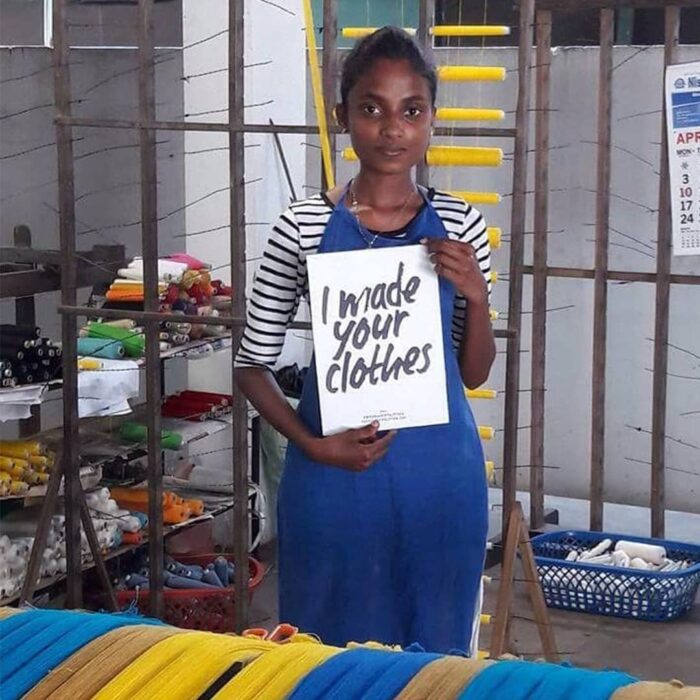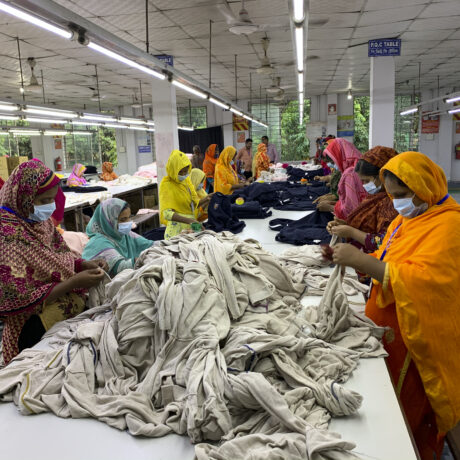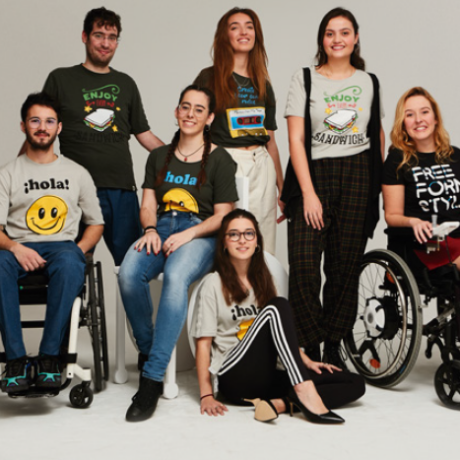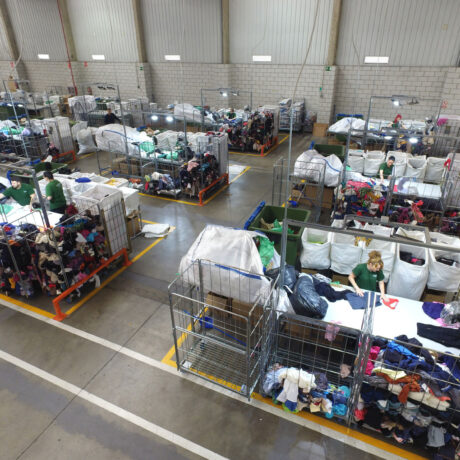A Fashion Revolution is coming
We all heard the echoes from every corner of our earth last week – calls for a fashion revolution. As people proclaimed #IMadeYourClothes, there was a widespread understanding that fashion is broken. From poverty wages to destructive models of fibre production, we have known for decades that the industry is on the wrong track. The pandemic has meant that global production and trade has ground to a halt. As we rebuild the fashion industry, now is the time to ensure it truly works for people and planet.
We are all stuck at home, stuck in the present, stuck in this crisis. While we struggle with immediate challenges we must also look beyond the pandemic. Post crisis, consumers will buy less but buy better – this is becoming clear. In response, a new world of fashion will emerge, so let’s begin that journey now.
In response, a movement is growing that is asking for #PlanetFairTrade and building solidarity between people around the world who aim to #StayHomeLiveFair. While businesses are shaken by the economic shocks of the pandemic, consumers and citizens are speaking up on social media to show their support for the idea that people and planet must come first. This economic vision is taking hold. It’s challenging a status quo that has failed us.
The pursuit of growth at all costs has led to unsustainable production, from farm to factory. And relentless marketing has led to unsustainable consumption. Together, these have created the ugly realities of fast fashion.

We cannot simply ask the businesses in fashion to behave differently. They are doing what they are designed to do: grow, win and ultimately, increase profits. There’s a design fault in the business models that populate the industry.
An economy that works for people and planet needs a new kind of business model. This cannot be today’s dominant mode of blinkered profit maximisation, where the environment is exploited and society manipulated. Nor can it be a model that is fixated only on delivering financial returns to the few. The new economy will not be created by businesses that wear this self-destructive straight-jacket.
Luckily, there is another way. Across the Social Solidarity Economy, Social Enterprise movement and the Fair Trade movement, new enterprises models have arisen. It’s the idea of building an entire business around a social mission. The network I lead is a core part of this alternative to profit-primacy, and it unlocks a range of practices and investments in social and environmental goals. Across the world, these enterprises innovate to use natural fibres, adopt upcycling, employ marginalised workers and embrace organic agriculture – regardless of whether the market rewards them for doing so or not. In mainstream fashion, sustainability is embraced only where it improves the bottom line. In the emerging enterprises of the new economy, sustainability is embraced regardless.
The examples of this working in practice are in the 100s from across the world. Manos del Uruguay for instance is a fashion producer and brand owned and governed by 12 women’s producer cooperatives across Uruguay. All decisions prioritise the interests of these women, their communities and the ecosystems on which they rely. Miquelina in Colombia (a high-performance garment manufacturer) deploys a foundation-ownership model that locks in the social mission, and Mahaguthi in Nepal (mostly focused on fashion manufacturing) has formally locked-in a 100 per cent profit-reinvestment model to ensure any surplus from trading goes back into supporting marginalised communities. Prokritee in Bangladesh has built a business model that upcycles waste fabrics into bags and baskets, while Chako in Zanzibar turns waste glass into light fittings. Cambodia’s Village Works makes bags from various waste bags and produces reusable bamboo straws. As enterprises built on mission-primacy, they have prioritized initiatives like minimising plastic use many decades before strong market demand emerged (e.g. the 1980s ‘Jute not Plastic’ campaign of European WFTO members, including EZA in Austria). A short video and case studies can be found at: wfto.com/jointhebusinessrevolution
This new way of doing business, of thinking beyond the immediate bottom line to environmental and social impacts, looks increasingly likely to become the foundation of the new economy around the world. As consumers and voters shape their preferences in the face of environmental and social dangers, business models must transform, just as governments must respond with a bold vision of the new economy.
As ‘business as usual’ becomes increasingly unviable, it will be flexible and purpose driven enterprises that are best positioned to take up the slack. A triple-bottom line comes naturally to businesses that work close to the ground and grow with – not despite – their local communities and environment. This must become the future of fashion.
Erinch Sahan is the Chief Executive of the World Fair Trade Organization (WFTO). WFTO is the global community and verifier of social enterprises that fully practice Fair Trade.








